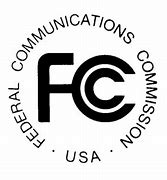In December 2020, under the Rural Digital Opportunity Fund (RDOF), the FCC tentatively awarded SpaceX $885 million to provide high-speed internet to 642,000 rural homes and businesses across 35 states. However, in August 2022, the FCC reversed this decision, citing concerns over Starlink’s ability to meet program requirements and deliver the promised services. The commission noted that Starlink “failed to demonstrate” its capability to provide the required high-speed, low-latency service.
Brendan Carr, the incoming FCC Chairman appointed by President Donald Trump, has indicated that the commission is unlikely to revisit the Starlink funding decision. Carr, previously a senior Republican leader at the FCC, has been a vocal critic of the initial denial, describing it as “regulatory harassment.” Despite his criticisms, Carr acknowledged that procedural constraints limit the commission’s ability to overturn the prior decision. An FCC spokesperson elaborated, “The decision on Starlink funding was made after careful consideration. We remain committed to supporting a variety of broadband solutions.”
The FCC’s stance suggests a continued focus on expanding broadband infrastructure through traditional, ground-based technologies. This approach ensures reliable and widespread internet access, particularly in underserved rural areas. While satellite services like Starlink offer innovative solutions, the commission appears to prioritize established methods for broadband deployment.
SpaceX has expressed disappointment with the FCC’s decision, arguing that Starlink can meet the program’s requirements and that the denial hampers efforts to bridge the digital divide in rural America. The company has previously appealed the decision, stating that it met or surpassed all RDOF deployment requirements existing during the bidding process. As the FCC continues to navigate the complexities of broadband expansion, the balance between supporting innovative satellite technologies and investing in traditional infrastructure remains a critical consideration. The commission’s decisions will significantly impact the future landscape of internet accessibility across the United States.
For more details, please look at the FCC’s official statement on the Starlink funding decision.




